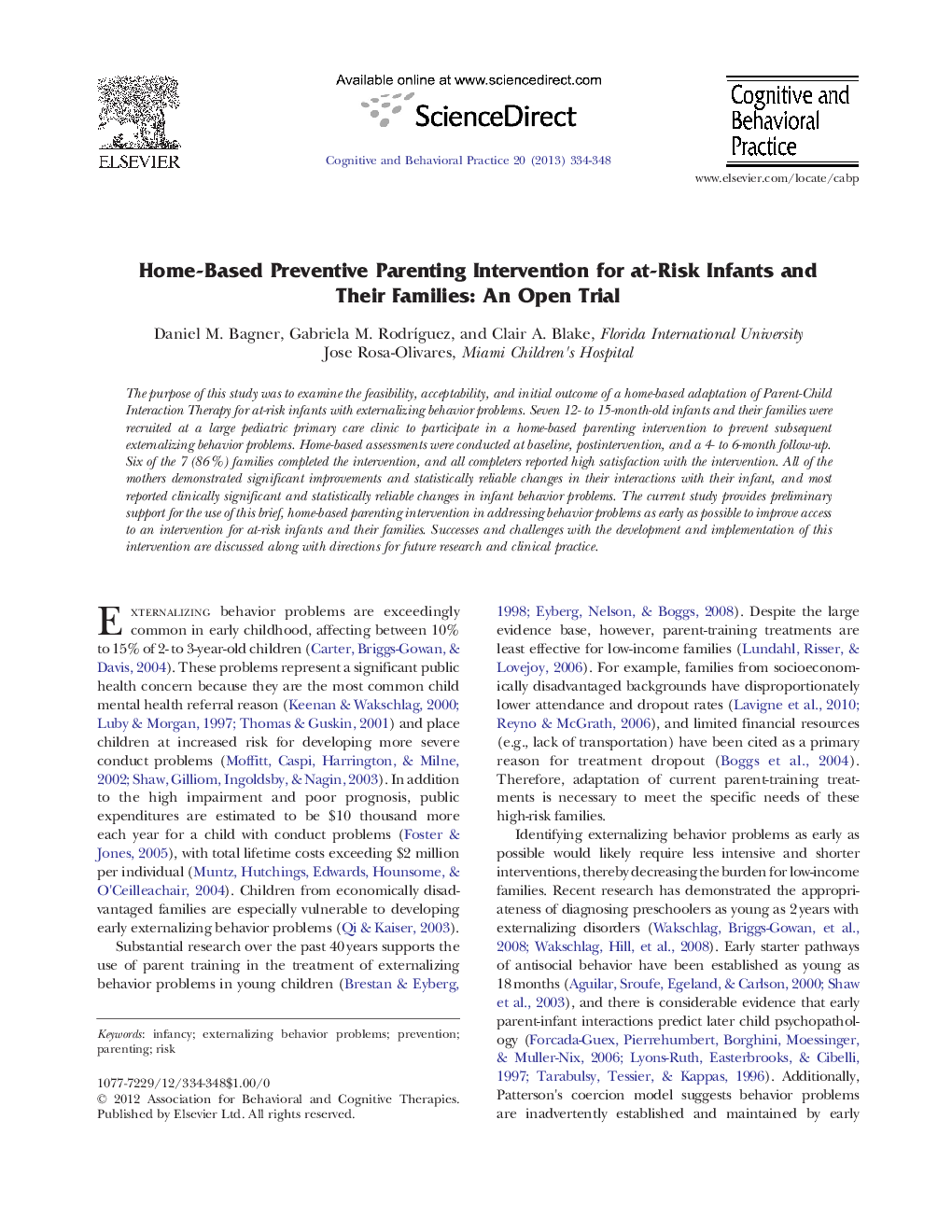| Article ID | Journal | Published Year | Pages | File Type |
|---|---|---|---|---|
| 904374 | Cognitive and Behavioral Practice | 2013 | 15 Pages |
The purpose of this study was to examine the feasibility, acceptability, and initial outcome of a home-based adaptation of Parent-Child Interaction Therapy for at-risk infants with externalizing behavior problems. Seven 12- to 15-month-old infants and their families were recruited at a large pediatric primary care clinic to participate in a home-based parenting intervention to prevent subsequent externalizing behavior problems. Home-based assessments were conducted at baseline, postintervention, and a 4- to 6-month follow-up. Six of the 7 (86%) families completed the intervention, and all completers reported high satisfaction with the intervention. All of the mothers demonstrated significant improvements and statistically reliable changes in their interactions with their infant, and most reported clinically significant and statistically reliable changes in infant behavior problems. The current study provides preliminary support for the use of this brief, home-based parenting intervention in addressing behavior problems as early as possible to improve access to an intervention for at-risk infants and their families. Successes and challenges with the development and implementation of this intervention are discussed along with directions for future research and clinical practice.
► A parent-training program was adapted as a preventive intervention for infants. ► The intervention was brief and home-based to reduce burden for low-income families. ► Initial outcome demonstrated promise of the intervention for infants and families. ► Future research should examine this preventive intervention with a larger sample.
